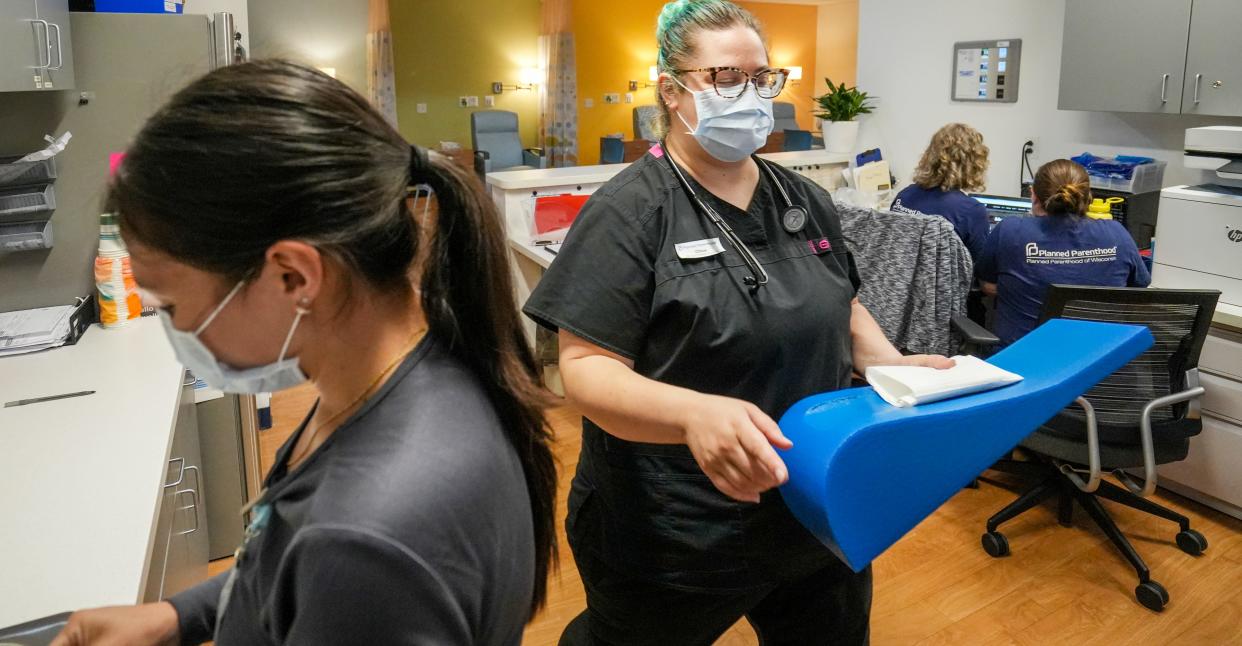Here's what we know so about what the Roe decision will mean for abortion services in Wisconsin

As the dust settles from the U.S. Supreme Court's overturn of Roe v. Wade, questions remain about abortion access and services in Wisconsin.
The decision, in part, means a return to a law made in the 1800s — though legal experts say it's far from a settled matter. But the Supreme Court's decision does not mean Wisconsinites are no longer pursuing abortions or abortion care.
Here's what we know so far about where things stand.
Is abortion legal in Wisconsin?
It's unclear. Wisconsin has returned to a law forged in 1849 that bans abortion at any stage, except when the mother's life is at risk. There are no exceptions for rape and incest, and Republican lawmakers said they opposed such exceptions.
According to the law, if someone gets an abortion in Wisconsin, the abortion provider would be charged with a crime, not the patient. Currently, Wisconsin law exempts the mother from charges.
But nonpartisan attorneys for the state Legislature and supporters of abortion access say potential and expected legal challenges muddy the answer to the question.
What is the punishment for having an abortion in Wisconsin?
The 1849 law states that “any person, other than the mother, who intentionally destroys the life of an unborn child is guilty of a Class H felony.”
If convicted of a Class H felony, the offender could receive a fine of up to $10,000 and/or up to six years in jail.
What kind of abortion services, if any, are still legal in Wisconsin?
Attorney Nola Hitchcock Cross, who specializes in employment discrimination and civil rights law, said under the current Wisconsin law, driving a patient to a clinic or helping fund an abortion are not criminal acts.
If an abortion is needed to save the mother's life, a practitioner must perform the abortion in a licensed maternity hospital, unless in an emergency, and the operation must be "advised by 2 other physicians."
Contraceptives are not restricted, but Assembly Speaker Robin Vos previously expressed interest in banning emergency contraception such as "morning after" pills or Plan B.
Since the law has not been in practice for a long time, Hitchcock Cross said there will be a lot of uncertainty with how courts will rule on the existing laws.
“Most statutes are continuously interpreted," Hitchcock Cross said. "It hasn't been dusted off to be challenged for a long time.”
If someone from Wisconsin wants an abortion, where can they go?
Abortion is legal in Illinois and Minnesota. After the fetus reaches viability at about 24 weeks, the procedure is only legal if the mother’s life or health is endangered.
Two of the nearest Illinois clinics are Planned Parenthood in Waukegan and the Chicago Health Center in Skokie. Both are about an hour drive from downtown Milwaukee.
In Minnesota, due to a 1995 case, abortion is legal and people can use state medical assistance to pay for the procedure. The state requires patients to receive counseling beforehand and wait 24 hours before receiving an abortion.
The WE Health Clinic is just across the Wisconsin border in Duluth, Minn. Planned Parenthood has locations in Rochester, Minneapolis and St. Paul.
This article originally appeared on Milwaukee Journal Sentinel: Here's what we know about abortion access in Wisconsin after Roe

